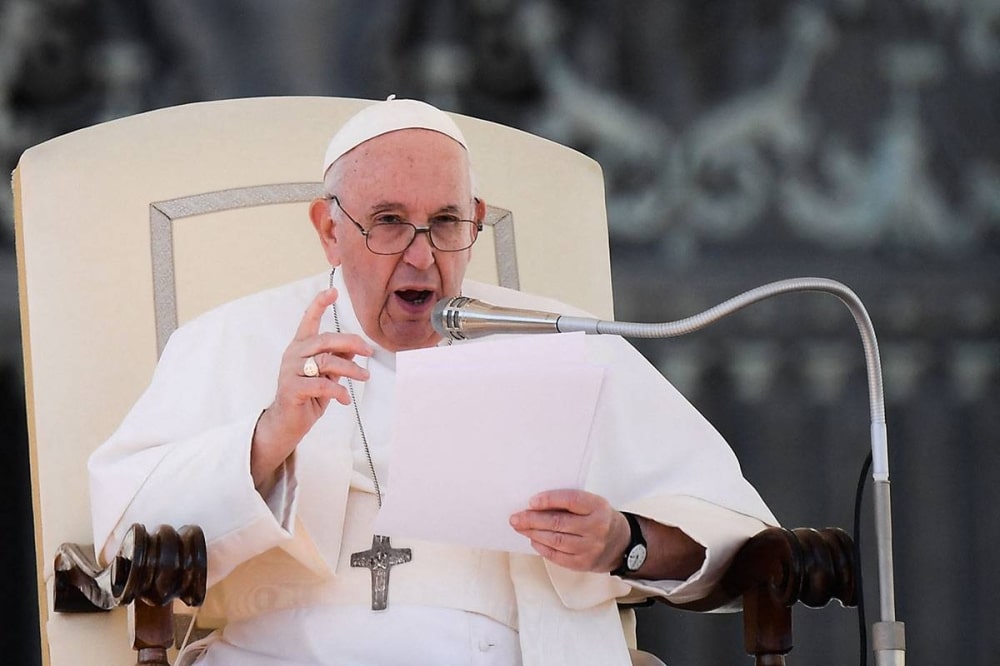World
Pope Francis Issues Apology for “Faggotness” Comment

Pope Francis, who has been widely quoted as using a highly disparaging term Faggotness to characterize gays in the seminary, did not intend to use homophobic terminology and apologized to anyone who was affected by it, the Vatican said on Tuesday.
“The Pope never intended to offend or express himself in homophobic terms, and he apologises to those who felt offended by the use of a term reported by others,” Vatican spokesman Matteo Bruni said in an emailed statement.
On Monday, Italian media reported that Francis used the Italian term frociaggine, which roughly translates as “faggotness” or “faggotry,” when telling Italian bishops that he still opposed admitting gay persons to the priesthood.
The Italian political gossip website Dagospia was the first to publish the alleged event, which occurred on May 20 when the pontiff met with Italian bishops privately.
Bruni claimed Francis was “aware” of the reports.
The Vatican spokesman emphasized the pope’s commitment to a welcoming Church for all, where “nobody is useless, nobody is superfluous, (where) there is room for everyone.”
Francis, 87, has been credited with making significant advances to the LGBT community over his 11-year papacy, but his reported words shocked and alarmed even his fans.
In 2013, at the outset of his papacy, Francis famously said: “If a person is gay and seeks God and has good will, who am I to judge?” Last year, he permitted priests to bless members of same-sex marriages, which sparked a significant conservative outcry.
Homosexuals in the Clergy
Homosexuality has long been a difficult issue in religious organizations. Many churches have severe policies against openly gay clergy members. However, several faiths are welcoming LGBTQ+ people into leadership positions.
For many years, LGBT clergy had to be discreet in order to preserve their jobs. The Catholic Church considers homosexual actions “intrinsically disordered” and prohibits openly gay persons from becoming priests. Recently, some Catholic dioceses expelled LGBTQ+ clergy who married partners.
Protestant churches take different viewpoints. Liberal denominations, like the Episcopal Church, the United Church of Christ, and some Lutheran synods, allow openly gay clergy. More conservative organizations, such as the Southern Baptist Convention, forbid it.
High-profile examples have pushed this argument to the forefront. In 2021, the United Methodist Church faced a rift on whether to continue its LGBTQ+ clergy ban. The election of openly lesbian Bishop Karen Oliveto in 2016 outraged conservatives.
As society advances in LGBTQ+ rights, churches are divided on whether to follow suit. Supporters say that homosexuality is natural and not sinful. Critics claim that the Bible forbids gay activity. The fight concerning LGBTQ+ clergy is likely to last for years.
Pope Francis
Pope Francis is the 266th pope of the Catholic Church and current head of the Holy See. Born Jorge Mario Bergoglio in Buenos Aires, Argentina, he’s the first Jesuit pope and first from the Americas.
Francis has emphasized social outreach, humility, and concern for the poor during his papacy. He’s spoken on issues like climate change, economic inequality, and sexual abuse within the Church. Despite some controversy, Francis remains a widely popular figure, known for his humble nature and call to service.
Source: Reuters